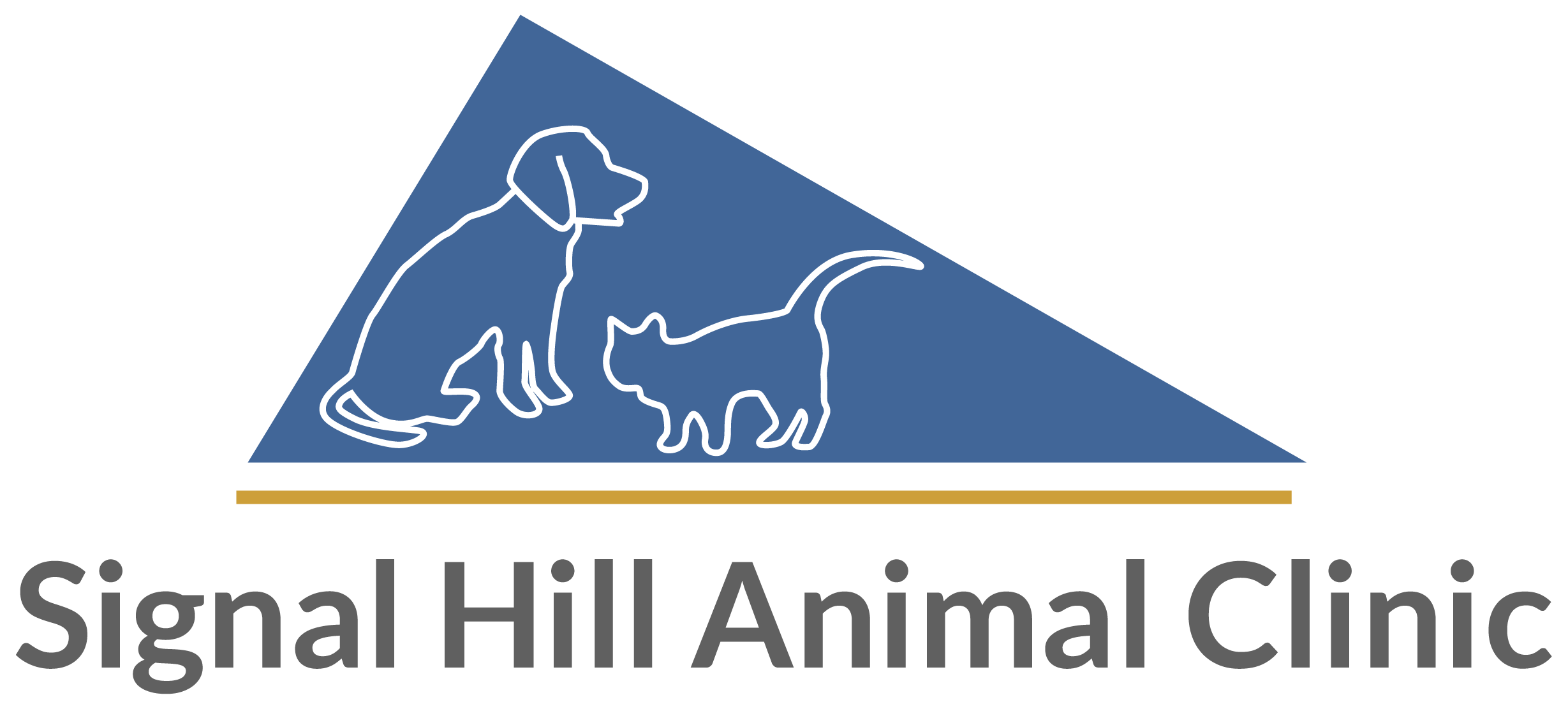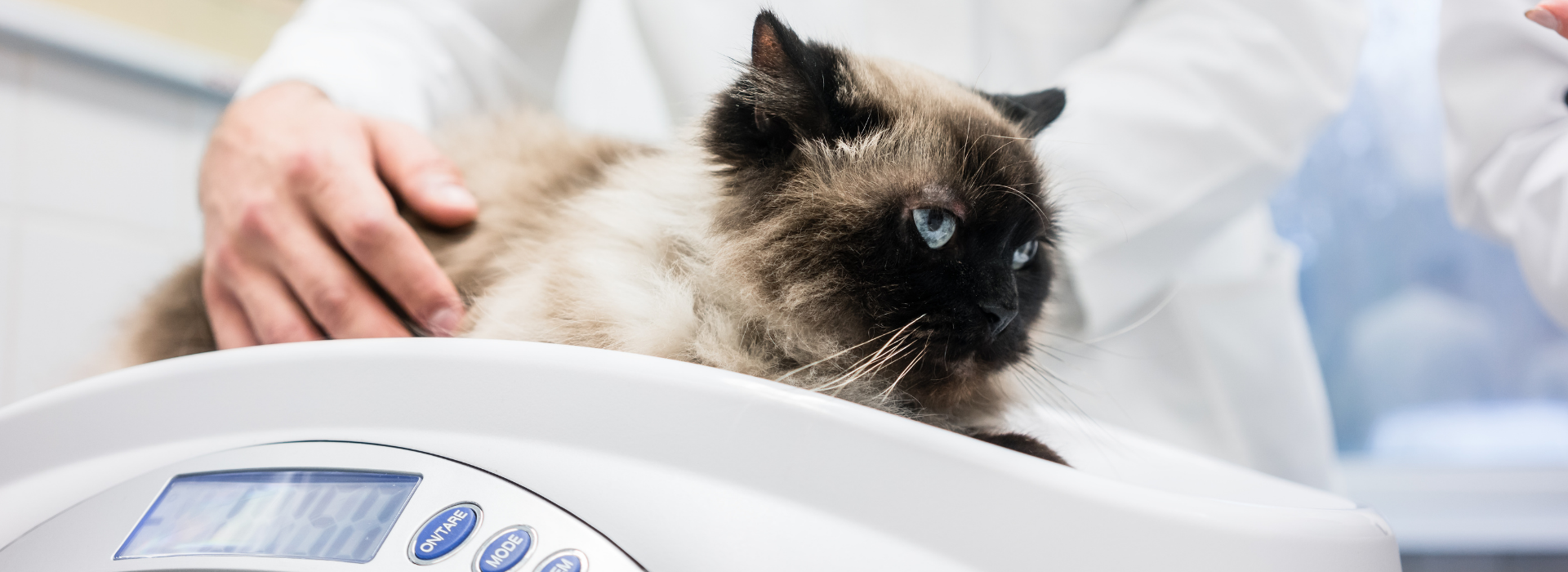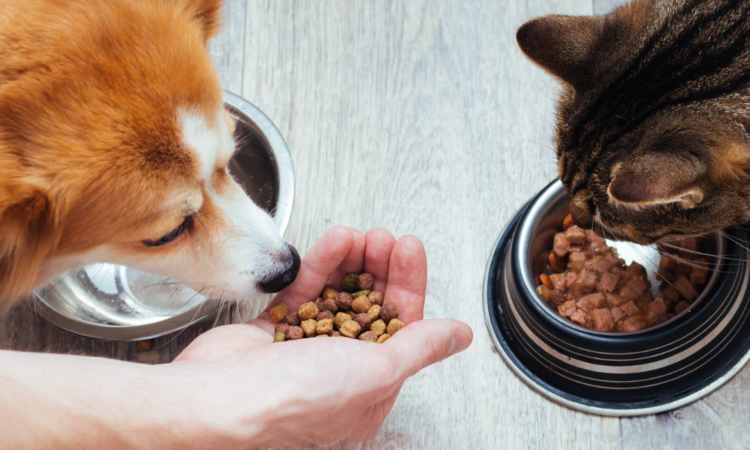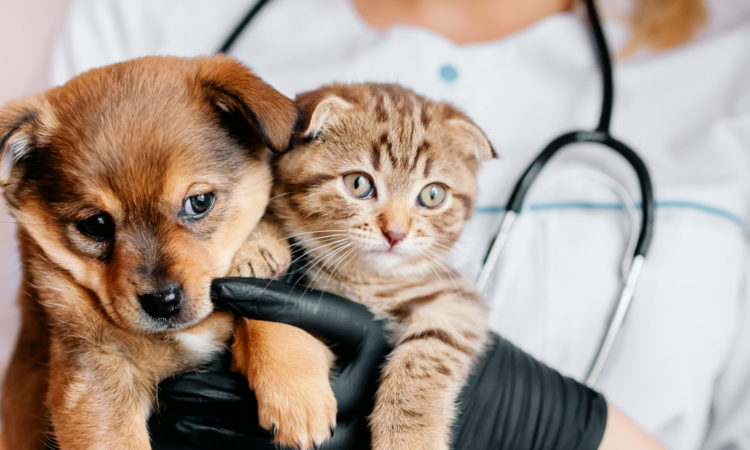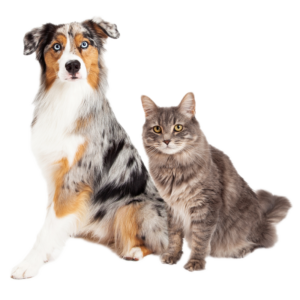It’s hard to say no to our cherished pets, but sometimes it’s in their best interest. Improper feeding can lead to medical issues that are expensive to treat. Here at Signal Hill Animal Clinic, we recognize the importance of your loyal companion maintaining a healthy weight. Weight management is much more than just losing extra pounds; it’s ensuring that your pet loses weight in a healthy way and takes on a healthier lifestyle.
How much should I feed my pet?
All pets are unique, especially when it comes to how much food they need. Most pets need to eat twice each day. Our experts consider your pet’s age, breed, general health, and activity level when making recommendations. We will calculate the number of calories your pet needs throughout the day and divide it in half. If you give your pet treats, the calories should be subtracted from their daily total. Treats shouldn’t account for more than 10% of your pet’s daily diet.
When is my pet considered overweight?
You can tell your loyal companion has excess weight when you notice them getting rounder in the belly area. It is not always as easy to know if your pet is overweight or obese; a veterinarian can identify the difference. Veterinarians can identify your pet’s ideal body weight and compare your pet’s current weight to determine if they are overweight or obese. If your pet’s weight is 10- 20% above their ideal range, they are overweight. Anything more than 20% is considered obese.
How does excess weight affect my pet’s health?
When your pet is overweight, they are more likely to develop health problems. Obese or overweight pets suffer from the same health problems as overweight humans like heart disease, arthritis, high blood pressure, and diabetes. These health issues negatively affect your pet’s quality of life and will need prompt veterinary care to prevent them from worsening.
How can I help my pet get to a healthy weight?
When your pet is diagnosed as overweight or obese, we create a weight loss plan to get them healthy. Some adjustments you can make to support your pet include:
- Limiting their treats
- Establishing a feeding schedule
- Saying no to begging
